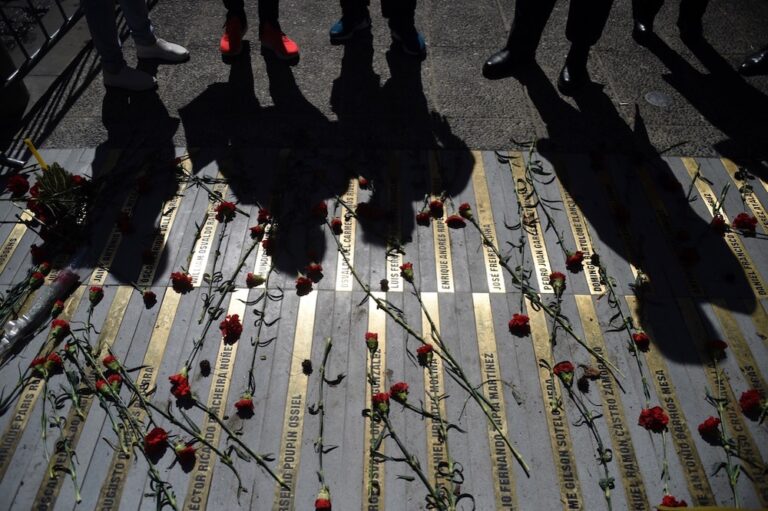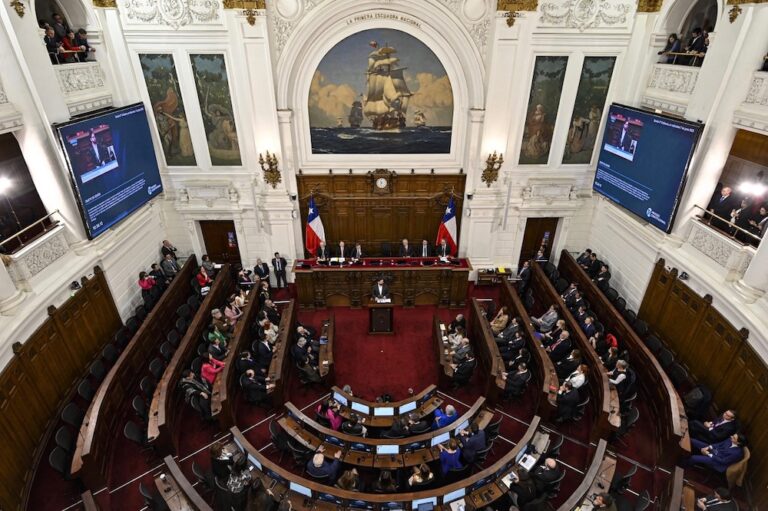(PERIODISTAS/IFEX) – On 15 October 2001, a group of lawyers complained to the Inter-American Court of Human Rights that the Chilean government has not complied with the court’s February ruling. The court had condemned Chile for censoring the film “The Last Temptation of Christ”. In June 1997, Chile’s Supreme Court ordered the banning of the […]
(PERIODISTAS/IFEX) – On 15 October 2001, a group of lawyers complained to the Inter-American Court of Human Rights that the Chilean government has not complied with the court’s February ruling. The court had condemned Chile for censoring the film “The Last Temptation of Christ”.
In June 1997, Chile’s Supreme Court ordered the banning of the Martin Scorsese film. Reviewing this decision, the Inter-American Court of Human Rights ruled that Chile had violated Articles 1, 2 and 13 of the American Convention on Human Rights, which protect freedom of expression. The court ordered that the screening of the film be permitted and that Chilean legislation that allows censorship be modified.
The court also demanded that the state provide information on its progress in complying with the ruling within a period of six months. After eight months had passed, the Lawyers’ Association for Public Freedoms (Asociacion de Abogados para las Libertades Públicas) informed the Inter-American Court of Human Rights that none of the conditions had been met.
Article 19 of the Chilean 1980 constitution, brought in under a military government, stipulates that “the law shall establish a system of censorship for the exhibition and publicity of motion picture production”. The legislation referred to in the constitutional article is Decree 679, signed into law by the same government in October 1974. The decree established a Film Ratings Council (Consejo de Calificacion Cinematográfica, CCC) with powers to reject films of various formats for public exhibition.
Nevertheless, in 1996 the CCC did permit the screening of “The Last Temptation of Christ”. Subsequently, the organisation Porvenir de Chile (Chile’s Future) filed a legal action arguing that the film damaged the honour of Christ, the Catholic Church and practitioners of the Catholic religion. The Inter-American Court of Human Rights responded that individuals’ honour should be protected but without jeopardising the right to freedom of expression and to receive information. The court recalled that Article 14 of the American Convention stipulates that, “Anyone injured by inaccurate or offensive statements or ideas disseminated to the public in general by a legally regulated medium of communication has the right to reply or to make a correction using the same communications outlet”.
Juan Pablo Olmedo, member of the Lawyers’ Association, informed PERIODISTAS that according to the Supreme Court the case will begin to be reviewed in early December 2001. Still, he pointed out, “the necessary constitutional amendments have not been made, debate over modifications to the ratings law is mired in parliament and the film is still not being screened in Chile”.


